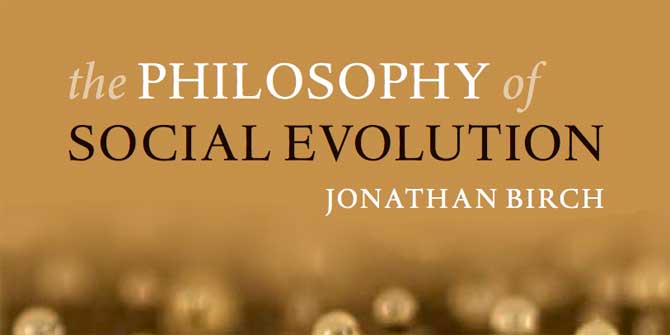Dr Jonathan Birch’s new book, The Philosophy of Social Evolution, is out today.
From mitochondria to meerkats, the natural world is full of spectacular examples of social behaviour. In the early 1960s W. D. Hamilton changed the way we think about how such behaviour evolves. He introduced three key innovations – now known as Hamilton’s rule, kin selection, and inclusive fitness – and his pioneering work kick-started a research programme now known as social evolution theory. Jonathan Birch’s new book, The Philosophy of Social Evolution, is about the philosophical foundations and future prospects of that programme.
Jonathan Birch is an Assistant Professor in the Department, where he specialises in the philosophy of the biological sciences, with a particular focus on the evolution of social behaviour. He’s also interested in the evolution of morality, animal sentience, and the relation between sentience and welfare. Dr Birch leads our Genes, Brains and Society course (PH227 / PH427), in which students examine the ways in which recent developments in genetics and neuroscience challenge our conceptions of what we are and what we could become. He also co-teaches our first year undergraduate course The Big Questions: An Introduction to Philosophy.
The Philosophy of Social Evolution is available now from Oxford University Press, who describe the book as “A fascinating exploration of the role that evolutionary theory can play in understanding the social world” and “essential reading for philosophers of science, evolutionary biologists, and evolutionary social scientists.”



Connect with us
Facebook
Twitter
Youtube
Flickr